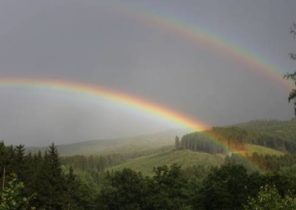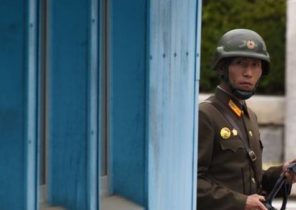
When the 52-year-old pole Michal Kopchinskaya in school age interested in the history of countries of Northern Europe, one question got him thinking. He read in a Polish book, that in 1939 Finland was attacked by USSR.
This did not seem the smart thing to do, especially if you compare Finland and the Soviet Union in size. “I was a naive teenager, I loved to do mathematics, physics and chemistry. In these disciplines, two plus two always equals four”.
In the history of the truth is not so straightforward. In the school years Kopchinskaya Poland was part of the Communist Eastern bloc, managed by the USSR. The official story was dictated by Moscow.
In 1982, 20-year-old Kopchinskaya met came to Poland Finnish academician Niels Erik Enkvist (Nils Erik Enkvist). Poland introduced the law on martial law due to the efforts of the democratic movement.
He asked Enquist of 1939 and the beginning of the Winter war. Enkvist told the truth about Manilskom the incident. Russia staged the attack Finland. Kopchinskaya received from Enquist literature on the history of Finland and other Nordic countries.
Now Kopchinskaya is Professor of history at Warsaw University and a leading expert in Poland in terms of issues associated with the life of Mannerheim. We talk in a coffee shop Blikle on Nowy Świat street.
On the wall of the coffee shop hangs a portrait of Mannerheim. Here he liked to visit when he was transferred to Warsaw for the command of Ulan regiment in 1911. Poland was part of Russian Empire, and Mannerheim was in the service in the tsarist army. Mannerheim enjoyed the time spent in Poland. He struck up friendships with Polish nobles, though he represented the side of the occupier.
“Mannerheim did not consider Russian. The aristocracy of Poland considered it before just Finn,” says Kopchinskaya.
Probably the closest friend of Mannerheim during his stay in Poland was Princess Maria Lubomirska, whose family was one of the richest in Poland. The nature of these relations there were many rumours, but according to Kopchinskaya in Poland this relationship in the first place is called friendly.
Nationalism raised its head in Russia in the 1900s, found expression in the period of oppression in Poland and in the Duchy of Finland. Finland and Poland, however, different relations with Russia.
“Poland has been more prone to riots against the Russian invaders,” says Kopchinskaya.
He talks about the rebellion in 1830, when the poles protested against the Russian. Was taken hostage by two Finns, who served in the Imperial army. They were urged to move to the side of Poland.
Men are not agreed. They said that the Finns will remain loyal to Russia, since he felt a “cold wind” over Finland.
Kopchinskaya, as a researcher, studied the relations of Finland and Poland with Russia. He said that at a time when countries were ruled by the Russian Empire, the position of Finland, in the end, proved to be more successful.
“The Finns have continued to keep a loyal line. Thus, they gained many freedoms-for example, during the reign of Alexander II,” says Kopchinskaya.
Regarding relations with Russia, the difference lies not only in the positions of the countries. Differed and the situation in the countries. Poland lost its independence. Finland was transferred from the Ministry of Sweden in the subjugation of Russia.
After the seizure of Crimea and war in Eastern Ukraine, relations with Russia again become a current topic in different European countries.
Poland belongs to Russia harder than Finland, and talks directly about the threat from Russia. Unlike Finland, Poland is a NATO member, and its current nationalist government refers to Russia with open distrust.
Kopchinskaya doesn’t want to draw Parallels with traditional Polish rebel spirit and the current policy of Russia. He stresses that is a historian.
Something the time when Mannerheim lived in Poland, can still teach. Then Russian nationalism also was strong, leading to Russification and oppression in Poland and in Finland.
“Russian nationalism can be really dangerous. Especially small States near Russia.”







